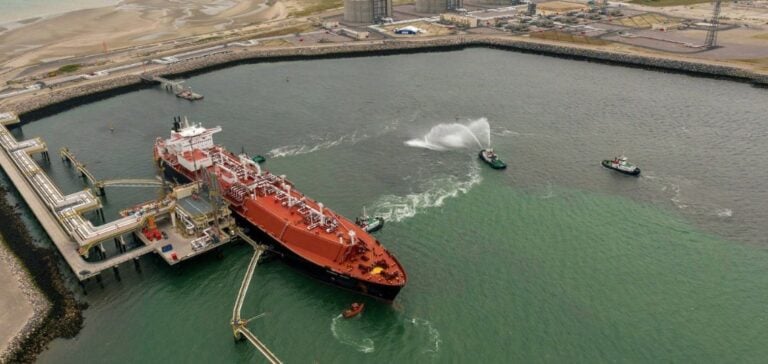Shell has announced the acquisition of Pavilion Energy, a Singaporean liquefied natural gas (LNG) company owned by Temasek. This transaction is part of Shell’ s strategy to increase its presence in the global LNG market and meet growing demand. Indeed, LNG has the wind in its sails, particularly in Asia.
Strategic reinforcement
With this acquisition, Shell integrates 6.5 million tonnes per year of LNG supply contracts from suppliers such as Chevron, BP and QatarEnergy. These contracts relate to liquefaction facilities in the United States, including Corpus Christi Liquefaction, Freeport LNG and Cameron LNG.
Pavilion Energy also brings long-term regasification capacity of around 2 million tonnes per year to the Isle Grain LNG terminal in the UK, as well as regasification access in Singapore and Spain. Pavilion’s LNG bunkering business in Singapore, the world’s largest ship bunkering port, is included in the agreement.
Prospects for growth and flexibility
Zoë Yujnovich, head of Shell’s integrated and upstream gas business, said the acquisition will provide material volumes and increased flexibility to Shell’s global portfolio. The company forecasts 20% to 30% growth in its LNG business between now and 2030, compared with 2022.
Shell expects global LNG demand to rise by over 50% by 2040, driven by the shift from coal to gas in China, South Asia and Southeast Asia. This transaction, absorbed in Shell’s capital expenditure, meets the company’s 15-25% growth ambitions for purchased volumes.
Implications for Pavilion Energy and Temasek
Pavilion Energy, created by Temasek a decade ago to meet Asia’s growing energy demand and support the energy transition, will continue to operate independently until the agreement is finalized in the first quarter of next year, subject to regulatory approvals.
Temasek retains its subsidiary Gas Supply Pte Ltd (GSPL), which imports natural gas by pipeline from South Sumatra in Indonesia, as well as Pavilion Energy’s pipeline gas contracts with customers in the electricity sector. These contracts will be transferred to GSPL prior to completion of the transaction. Pavilion’s 20% interest in blocks 1 and 4 in Tanzania is not included in the agreement.
Shell’s acquisition of Pavilion Energy marks a key step in Shell’s strategic expansion in the LNG market. By integrating Pavilion’s assets, Shell strengthens its position as world leader and prepares to meet the growing demand for LNG worldwide, while supporting the global energy transition.






















